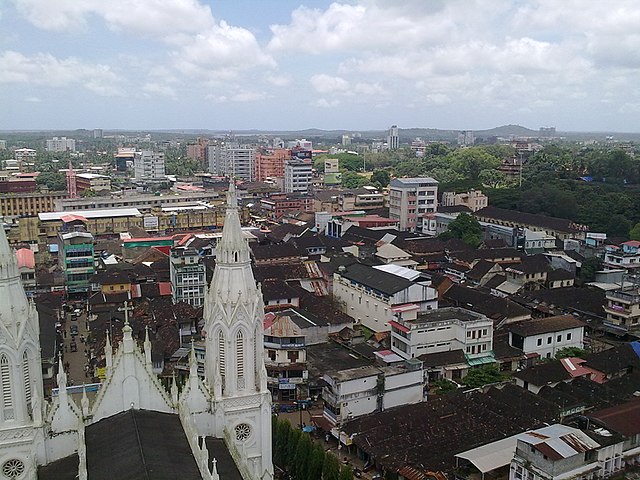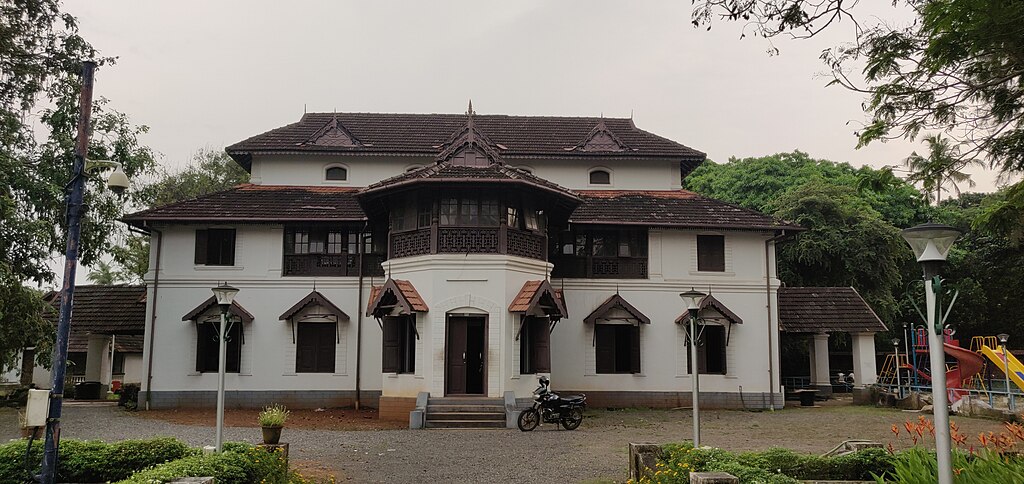
Through the generosity of the late Professor Benedict Anderson and Ajarn Charnvit Kasetsiri, the Thammasat University Library has acquired some important books of interest for students of Association of Southeast Asian Nations (ASEAN) studies, political science, literature, and related fields.
They are part of a special bequest of over 2800 books from the personal scholarly library of Professor Benedict Anderson at Cornell University, in addition to the previous donation of books from the library of Professor Anderson at his home in Bangkok. These items are shelved in the Charnvit Kasetsiri Room of the Pridi Banomyong Library, Tha Prachan campus.
They include Memories of a Father by Professor T.V. Eachara Varier.
The book was originally written in Malayalam, a language spoken in the south Indian state of Kerala and other territories. It is one of 22 scheduled languages of India, spoken by 45 million people worldwide.
The author, T.V. Eswara Varier (1920–2006), was a poet and professor from Thrissur district in Kerala. When his son disappeared in police custody, he wrote this memoir.
The book was published by the Asian Human Rights Commission (AHRC).
The Thammasat University Library owns a number of books published by, and about, the AHRC.
As the AHRC website noted in 2006, Professor T. V. Eachara Varier was a symbol of perseverance and fearlessness:
Professor Varier has left the legacy of a consistent fight of a father to find justice against the state for the disappearance of his son during the infamous Emergency in India from 1976 – 77. Professor Varier is the father of Rajan who was arrested by the Kerala police and later reported to have disappeared during the Emergency.
Rajan, a student of engineering at the Regional Engineering College, Kozhikode – Kerala State was arrested by the local police on 29 February 1976 and was never to be seen again. It is believed that Rajan who was arrested on mistaken identity was taken to Kakkayam Police Camp in Kerala… Professor Varier boldly pursued his son’s disappearance, which was unimaginable during the period since anyone who challenged the police and the state administration during the Emergency would risk dire consequences…
Professor Varier’s courageous attempt was not limited to find the truth of his son’s disappearance, but also of those behind the death and disappearance of various others in similar situation during the Emergency. This also paved way to open up a new and bold discussion on police torture and custodial violence in India.
Professor Varier’s memoirs have also been translated into the Thai and Nepalese languages.

AHRC was founded in 1984 by a group of jurists and human rights activists in Asia. As its website explains,
The AHRC is an independent, non-governmental body, which seeks to promote greater awareness and realisation of human rights in the Asian region, and to mobilise Asian and international public opinion to obtain relief and redress for the victims of human rights violations. AHRC promotes civil and political rights, as well as economic, social and cultural rights.
AHRC endeavours to achieve the following objectives stated in the Asian Charter “Many Asian states have guarantees of human rights in their constitutions, and many of them have ratified international instruments on human rights. However, there continues to be a wide gap between rights enshrined in these documents and the abject reality that denies people their rights. Asian states must take urgent action to implement the human rights of their citizens and residents.”
The Asian Human Rights Commission/Asian Legal Resource Centre works towards the radical rethinking and fundamental redesigning of justice institutions in Asia so that the institutions transforms into effective instruments of human rights protection and guarantors of democracy.
The Founders of AHRC/ALRC had a broad vision of upholding human rights in Asia, which were expressed in abstract terms. Over the years, the AHRC/ALRC has redefined its vision to reflect its experience based on extensive engagement in human rights activism in Asia.
To achieve the vision of radical rethinking and fundamental redesigning of justice institutions in Asia – in order that the institutions can provide relief and redress to victims of human rights violations as per Common Article 2 of the International Conventions – the AHRC/ALRC is engaged in the following work:
- Identifying defects of Asian justice institutions, i.e. police, prosecution, and judiciary, and making recommendations in light of universal human rights norms;
- Building and equipping large advocacy groups to enable consistent work for desired changes, assisting these groups to articulate demands for change, and disseminating ideas widely;
- Creating global awareness and support for institutional transformation in Asia;
- Engaging in advocacy in specific cases of human rights violations and protecting human rights defenders;
- Assembling a people’s narrative of human rights violations particularly from the point of view of equality before the law and fair trial;
- Intervening in cases of torture, and all negations of fair trial principles, like extrajudicial executions, disappearances, and other forms of inequality before law and discrimination, including those that emanate from gender, religion, and caste-based discrimination;
- Using the UNCAT to highlight fundamental defects of justice institutions;
- Building a wide network of partnerships and contacts and assisting civil society and victims of human rights abuses, in order to achieve the aforementioned work in light of the vision.
Among its guiding principles are to offer advice in a Handbook of Guidelines for Working Strategies and Methodologies.
The AHRC points to the human rights protection model in developed democracies for adequately developed policing, prosecution, and judicial systems. The mandate of the AHRC, as the organization notes, is carried out
through interventions, monitoring, media, advocacy, education and reforms related to human rights protection and promotion. These functions are mentioned in the diagram of the AHRC’s working model. The country desk work forms the bedrock and initiation point of the organizations’ engagement. The work generated from the countries are processed by the following desks to shape it into an effective, meaningful, and sustainable campaign. They are: the Urgent Appeals and Hunger Alert Desks; Human Rights School and Workshops; Media and Publications; Legal and Institutional Reforms; the Asia-Europe Dialogue Desk; Protection and Humanitarian Assistance; the Religious Groups for Human Rights; Campaigns; Prevention of Torture; and IT & Communications. Each desk has developed unique features in carrying out the organization’s mandate.

(All images courtesy of Wikimedia Commons)
